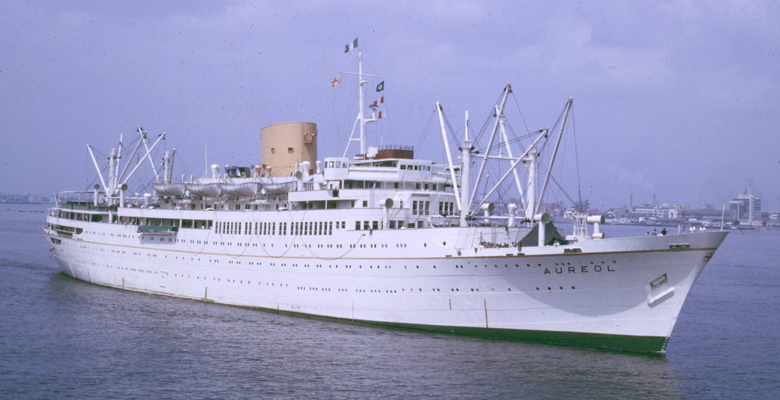Future-proofing history

Liverpool workers’ memories of the Elder Dempster Lines, the UK’s largest shipping group trading between Western Europe and West Africa, have been recorded and captured as part of an online archive created by Liverpool John Moores University.
Launched on Friday 11 November at Central Library, the ‘Homeward Bound’ project is funded by the Heritage Lottery and has digitally captured the memories of employees and passengers of Elder Dempster, operational between 1852 and 1989, to ensure the history of the once famous shipping line will be secured for future generations.
At its peak, Elder Dempster Lines – known colloquially as ‘Elders’ – employed over 4,000 people, including 1,500 full-time seafarers, 250 office staff and 2,400 on-shore staff in West Africa. Elders was a major employer in West African ports and it was the first company to train African navigating officers.
With more than 60 ships in its fleet, Elders imported essential food stuffs and raw materials into the UK, such as cocoa, peanuts, palm oil, copper and tin, and exported manufactured goods to West Africa, including cars, Cheshire salt, cement and train engines.
Elders’ headquarters were in India Buildings, Liverpool, the UK's second largest port from the nineteenth century until the early 1970s. The company and its employees played a key role in developing economic, social and cultural links between West Africa, the UK and the wider Atlantic, including continental Europe and North America. As well as carrying large volumes of cargo, they provided passenger and mail services. A vibrant social life developed around the firm in the UK and on the West African coast, ashore and afloat.
The ‘Homeward Bound’ project started as a result of requests made by members of the Elder Dempster Pensioners Association, who were keen to ensure their memories of the company and the vibrant, bustling port of Liverpool were not lost. They approached researchers at the Centre for Port and Maritime History – a joint venture between Liverpool John Moores University, Merseyside Maritime Museum, and the University of Liverpool – and Co-Director of the Centre, LJMU’s Professor Nick White, who has particular expertise in the history of the Ocean Group, which acquired Elder Dempster, and the transition from colonial rule to independence, was keen to lead the project.
Professor White commented: “This is a people’s history of Elder Dempster, collecting the memories and memorabilia of ordinary seafarers, office staff, and their families. The archive is so valuable because it documents a maritime world which, through containerisation and the rise of air travel, has largely disappeared – both in Liverpool and West Africa. I’ve marvelled at the skills, dedication and organisation involved in loading, unloading and keeping the ships running over very long distances and different climates, and quite often in hazardous conditions.
“The interviewees in the project were very keen to be involved because they are mostly elderly and they wanted their unique lives and experiences to be preserved for posterity and in perpetuity, and in a form that was accessible to all. Through the technology of the internet the archive brings to life the hustle, bustle and unpredictability of maritime trade and travel, reminding us of the global historical links of the great port city of Liverpool, and particularly those with West Africa.”
The project hopes it can attract more funding to further expand the archive, focussing particularly on the digitising of memorabilia and mementoes in the possession of ex-employees and passengers, such as advertising brochures, sailing schedules and photographs.
Following the Central Library launch, the exhibition will be held there until 9 December. It will then move to LJMU’s Aldham Robarts Library, Maryland Street, for public viewing from 13 December 2016 to 30 January 2017.
Visit the Elder Dempster microsite.


